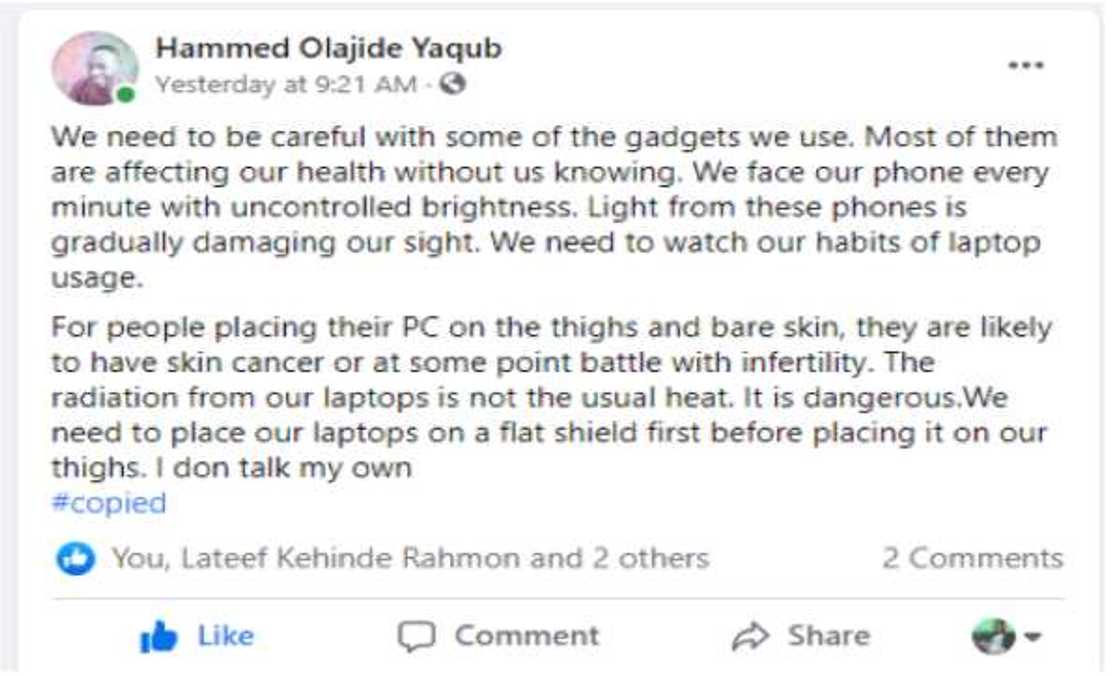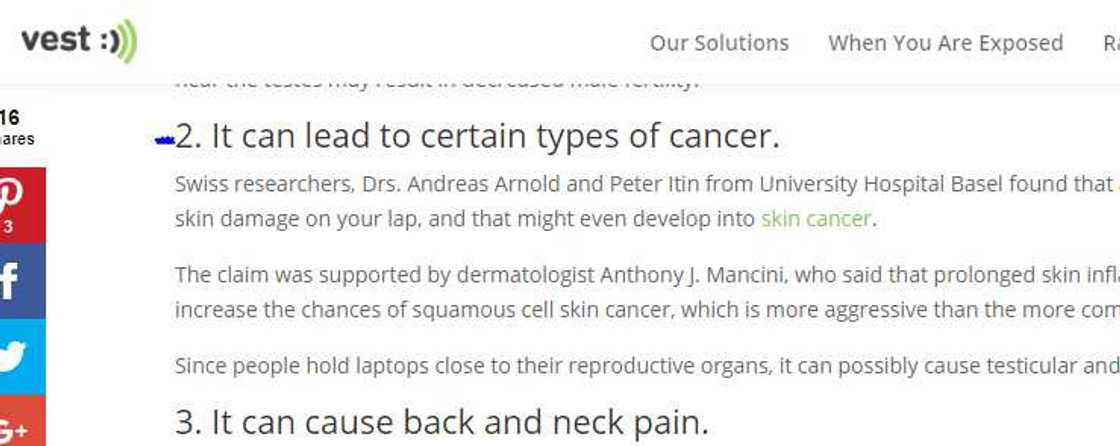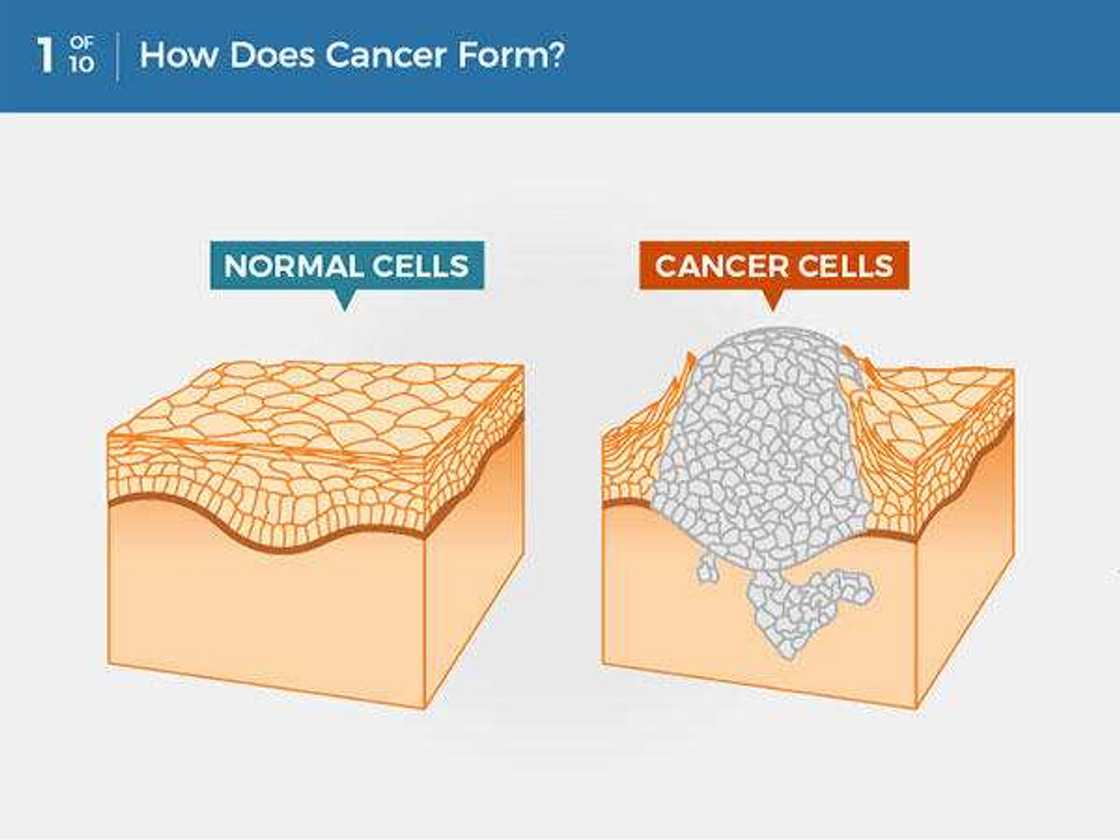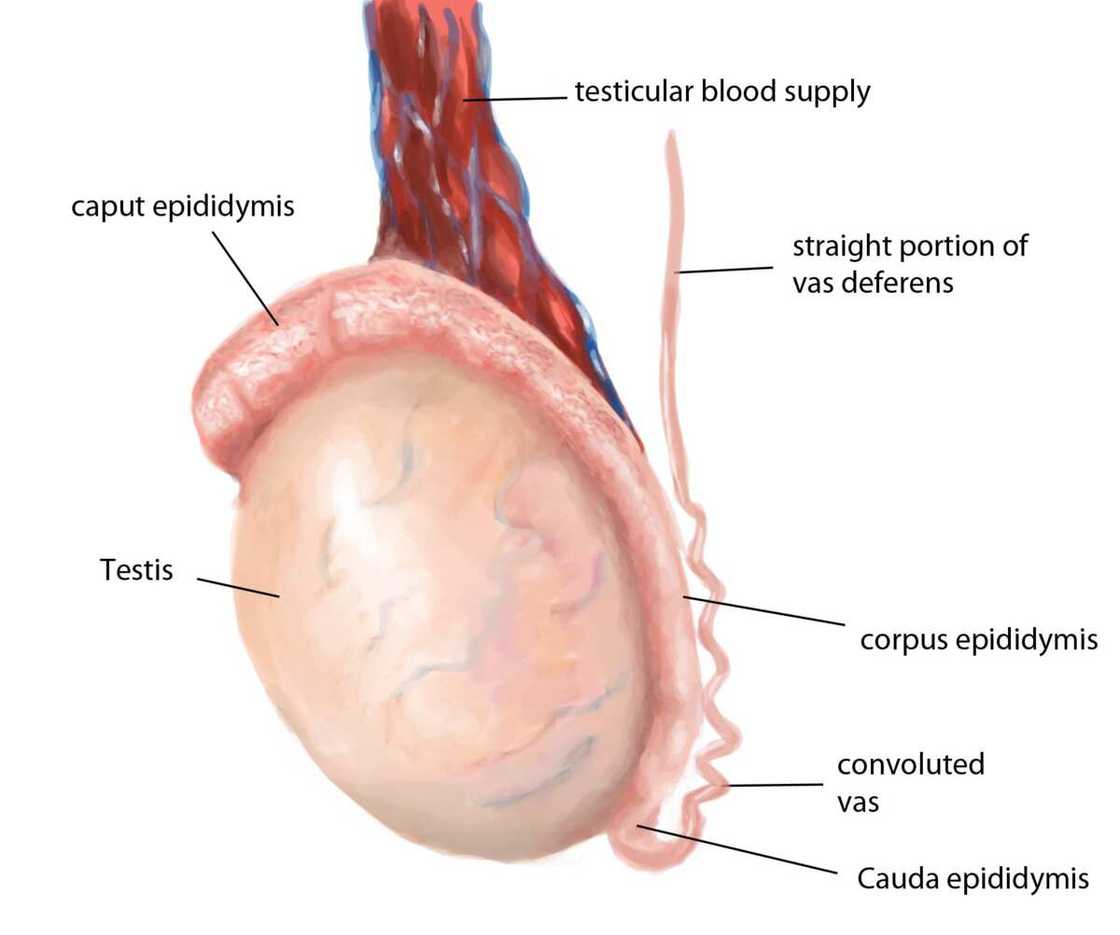FACT-CHECK: Does Laptop/PC Radiation Cause Skin Cancer & Infertility? Here is the Truth
A Facebook user recently claimed that resting a laptop computer on the thigh or bare skin is hazardous to one’s health and can lead to skin cancer because of the “dangerous” emission.
Verdict
There is no established scientific study connecting cancer with radiation emitting from a laptop. However, the radiation can alter testicular cells and contribute to male infertility, a health disorder leading to a man’s inability to cause pregnancy in a fertile female.
Full story
A social media user, Hammed Yakub, in a Facebook post on Saturday, July 10, issued a stern warning against consistent resting of laptop, a mobile personal computer (PC), on the laps or bare skin, arguing that it is dangerous to health.
Although he did not support his claim with any established scientifically proven data, the social media user stated that men are most at risk because the radiation emitted from the PC is different from the known heat.
He said the heat may lead to skin cancer and infertility. He, however, advised that PC users should place their laptops on a desk instead of on the lap.
“We need to be careful with some of the gadgets we use. Most of them are affecting our health without us knowing. We face our phone every minute with uncontrolled brightness. Light from these phones is gradually damaging our sight. We need to watch our habit on laptop usage,” he claimed
“For people, especially men placing their PC on the thighs and bare skin, they are likely to have skin cancer or at some point battle with infertility. The radiation from our laptops is not the usual heat. It is dangerous.
“We need to place our laptops on a flat desk first before placing it on our thighs. I don talk my own (I’ve said my own).”

Source: Facebook
Verification
Due to the increase in the use of highly sophisticated gadgets in Africa, there has been a seemingly renewed call warning against placing laptops on the thighs and bare skin, with a number of unproven opinions submitting that users are open to various health hazards.
One of all the health risks often touted is cancer. For instance, in its article titled “6 Reasons To NEVER Place your Laptop on Your Lap,” a health blog, Vest Tech, claimed that radiation from PC does not only cause harm to the reproductive organ but also “develop into skin cancer.”
The website cited a report by dermatologist Anthony J. Mancini, who claimed that “prolonged skin inflammation can potentially increase the chances of squamous cell skin cancer, which is more aggressive than the more common form of skin cancer.”

Source: UGC
While this has been staying for long, research by Legit.ng established that there is no connection between cancer and PC radiation. But what is cancer and PC?
“Second leading cause of death globally”
According to the National Cancer Institute, a website contributing to cancer research globally, cancer is a disease in which the body’s cells grow uncontrollably and spread to other parts of the body.
The health research hub stated that cancer can start almost anywhere in the human body, which is made up of trillions of cells.
Of course, under normal circumstances, human cells grow and normally multiply to form new cells as the body needs them. When cells grow old or become damaged, they die, and new cells take their place.
“Cancerous tumours spread into, or invade nearby tissues and can travel to distant places in the body to form new tumours (a process called metastasis). Cancerous tumours may also be called malignant tumours,” the website further explained.
The World Health Organisation (WHO) described cancer as a “large group of diseases that can start in almost any organ or tissue of the body when abnormal cells grow uncontrollably, go beyond their usual boundaries to invade adjoining parts of the body and/or spread to other organs.”
WHO explained that the cancer burden grows globally because it “is the second leading cause of death globally, accounting for an estimated 9.6 million deaths, or one in six deaths, in 2018.”
World Cancer Day, an initiative of the Union for International Cancer Control (UICC), classified cancer as Carcinoma, Sarcoma, Lymphoma and Myeloma, Leukaemia and Brain and spinal cord cancers.
The website attributed the causes of cancer to alcohol, obesity or being overweight, bad nutrition, lack of physical activities, Ionising radiation, infection and a bad environment.

Source: UGC
PC/laptop and its components
Ecommputers, a website that provides details about computers, described a laptop as a microprocessor technology that has been any small, relatively inexpensive computer designed to be used by one person at home or in an office.
The typical personal computer assemblage, according to Britannica, consists of a “central processing unit (CPU), which contains the computer’s arithmetic, logic, and control circuitry on an integrated circuit; two types of computer memory, main memory, such as digital random-access memory (RAM).
It also has an auxiliary memory, such as magnetic hard disks and special optical compact discs, or read-only memory (ROM) discs (CD-ROMs and DVD-ROMs); and various input/output devices, including a display screen, keyboard and mouse, modem, and printer.”
Cancer and PC radiation
Findings by Legit.ng established that Laptops emit radio waves and other electronic signals known as Electro-magnetic radiation (EMRs) in various frequencies.
This is extremely detrimental to the body as they cause discomfort when laptops are placed on bare skin. Prolonged exposure to these EMRs are known to cause a variety of other problems and disorders --one of them described as “toasted skin” by dermatologist and dermatosurgeon, Dr Shenaz Z Arsiwala.
Despite this, there is no proven data that the EMRs radiation causes cancer.
According to Cancer Council Australia (CCA), a national organisation which aims to promote cancer-control policies and to reduce the illness caused by cancer in Australia, there is no link between using a portable (laptop) computer and cancer.
In its response to numerous questions about cancer and PC, the institute explained there is no established research that cells can be damaged in the body due to PC radiation.
“While some studies show heat from various sources, not just laptops can affect a man’s sperm and fertility, there is no research linking heat from laptops to cell damage or cancer.
“There have been cases of “toasted skin syndrome” (mottled skin condition caused by long-term heat exposure) in people who used laptops resting on their legs for long periods,” the council submitted.
Excessive PC radiation can damage scrotum cells but not cause skin cancer
When Legit.ng contacted a health expert and dermatologist at the LAUTECH Teaching Hospital, Dr Lukman Adefabi, it was explained that the only radiation that can cause cancer is an x-ray which can lead to mutation or change in the structure of the cells.
“Radiation can cause cancer but depending on the intensity of the radiation. When the intensity is accumulating in the cells, it can lead to cell mutilation (an alteration in the genetic material (the genome) of a cell of a living organism or of a virus).
“When there is a high and uncontrolled rate of cell division or the cells being altered due to excessive and accumulated radiation, it results in cancer.”
Dr Lukman explained that resting a laptop on bare thighs can lead to changes in the nature of the testis cells. This, according to him, can reduce sperm production-- but it rarely leads to cancer (of testitis, not skin).
“Rarely it can cause cancer of that testis, but can change the nature of that testis due to accumulation of radiation in the testis,” he added.
The testis, as defined by the Weil Cornell Centre for Male Reproductive Medicine and Microsurgery, is the male reproductive gland which is contained within a scrotum, which is an extension of the abdominal wall.
Hasmik Soloyan and Sargis Sedrakyan in their paper titled Encyclopedia of Tissue Engineering and Regenerative Medicine published in 2019 stated that testes contain very fine-coiled tubes, called seminiferous tubules and are covered with tough membrane, tunica albuginea.

Source: UGC
Dr Adefabi submitted that radiation from the laptops cannot cause skin cancer as widely speculated.
Conclusion
The exaggerated claim that emission from the PC can lead to cancer has been staying too long in the centre of discussion due to the rise in the number of PC users and access to various advanced gadgets.
While there are different damages these gadgets can cause on our individual healths such as male infertility, but when the testicular cells are damaged, there is no proof it causes cancer.
Source: Legit.ng






